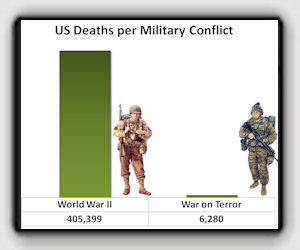|
|


Submitted by Adam Smith, CFE, CFI
Senior Regional
Asset Protection Manager
Winn Dixie Stores
It’s a dangerous world we live in. At least that is what
we hear in the news media. Reports of shootings and
violence consume news broadcasts. Recently, we’ve added
a new form of terrorism in the "lone gunman", which
represents a single attacker, like the most recent
shootings. These are terrible tragedies, which we should
make every effort to prevent. However, is this a
dangerous time period for humans?
Looking at the data; murder, rape, and other violent
crimes are at some of the lowest levels in human
history. Even casualties per military conflict are
dramatically lower than World War II levels. As an
American, you have the most political freedom and
economic opportunity than any other time period. Simply
stated, you are safer from violent crime today than any
other time in human history.
At first this can seem difficult to swallow. As a child,
you may remember running freely through your
neighborhood or being allowed to wander the shopping
mall. It just seemed like a simpler, and safer, time to
be a child. Today, children are monitored closely by
their parents, some resorting to a child leash or GPS
tracking. Empirically, this would suggest that these
precautions are taken as a result of an increase in
violence.
 The
contradiction can be explained by the zeitgeist, which
is defined as "spirit or mood of a particular period of
history as shown by the ideas and beliefs of the time."
The current zeitgeist of society is a reduced tolerance
of violence. A good example of this is our tolerance of
military casualties. The United States incurred over
400,000 deaths, or 3% of the entire population, during
World War II. By comparison, the Iraq and Afghanistan
wars combined have resulted in 6,280 deaths, or .002% of
the population of the country. However, there is a far
greater public movement to exit the current war, which
has claimed only a fraction of the lives as compared to
WWII. While these are different wars, our sensitivity
towards death has clearly changed. This is most likely
why we are more protective of our children. The
contradiction can be explained by the zeitgeist, which
is defined as "spirit or mood of a particular period of
history as shown by the ideas and beliefs of the time."
The current zeitgeist of society is a reduced tolerance
of violence. A good example of this is our tolerance of
military casualties. The United States incurred over
400,000 deaths, or 3% of the entire population, during
World War II. By comparison, the Iraq and Afghanistan
wars combined have resulted in 6,280 deaths, or .002% of
the population of the country. However, there is a far
greater public movement to exit the current war, which
has claimed only a fraction of the lives as compared to
WWII. While these are different wars, our sensitivity
towards death has clearly changed. This is most likely
why we are more protective of our children.
Now that we have established that our overprotectiveness
is unfounded and probably a product of increased media
coverage, are we overreacting?
Even though there are statistically few violent deaths,
the pain and mourning for those affected by them are
very real. As a society, a single death represents a
fraction of a percent of the population, but to an
individual, the death can be a significant percentage of
their immediate family. For example, a childless woman
losing a husband could be losing 100% of her immediate
family. Thinking back to the example of the
overprotective parent, even one abduction is
unacceptable if it is your child.
Security is just as important as ever. Our society has
progressed to cherish life more than ever, have smaller
families, and grieve longer. In the retail environment,
it is the Loss Prevention professional's responsibility
to make sure our stores provide the safety that our
customers demand. |
|
|

What's Happening?
Coming in 2012:
Mobile App's
LP Show Coverage
The Top 10
|
|